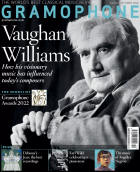Texte paru dans: / Appeared in: |
|
|
Outil de traduction |
|
|
Technically, this album is difficult to fault. Frank Peter Zimmermann’s playing of the Preludio of Bach’s Partita No 3 in E is entirely blemish-free. His Stradivarius of 1711 gleams; clarity and cleanness are omnipresent; intonation is freakishly perfect. But is it exciting?The seeming perfection of Zimmermann’s performances has me confused. I should like this album, but something holds me back. Zimmermann’s approach towards performing Bach gives off a certain kind of energy. It feels as though he views these works for solo violin as a series of challenges to defeat: chords to conquer and semiquaver runs to nail. It is an approach that makes little sense for many of the movements. Take the Sonata in A minor that opens the disc. The bravura of the Fugue is most impressive. But Zimmermann slices his way through bars, chopping at chords like a frustrated lumberjack. To be sure, there are moments of slender athleticism and itamae-like precision, too, but hacking dominates. Out of the choppy and chunky, then, the demisemiquavers in the closing bars sound more like a technical exercise than an inevitable outcome of fugal energy. My main issue with this album, however, is more difficult to define. There is something that seems feigned about Zimmermann’s playing, particularly in the changes of character (such as during the Fugue). Now, this is dangerous territory, of course: who am I to say what Zimmermann feels or does not? However, my reaction to this disc is not one of belief: the emotions of the performances do not feel felt – they feel acted. In the Sonata’s opening Grave, I hear Zimmermann reading Bach’s rhythms: the music does not organically emerge from him, from an irreproducible encounter of bow and string. And because of this, I struggle to be moved. The Loure (Partita in E) and the Allemanda (Partita No 2 in D minor) are excellent examples of how faultless playing can also be unaffecting. It’s as if Zimmermann is going through the motions of what Bach’s music ‘should’ conjure – here wistful, here shy – and so this listener’s experience is one of emotions received third-hand.I urge you to make up your own mind. Perhaps this month I listen with overcynical ears, and in time I’ll hear something beyond the obvious excellence on show.
|
|




